Educational Resources for Autism in Virginia
Fortunately, there are many educational resources available in Virginia that can help children with autism reach their full potential. In this article, we will explore some of the best educational resources for autism in Virginia.
.jpg)
Educational Resources for Autism in Virginia
Understanding Autism Education
When it comes to autism education, specialized programs play a vital role in providing individuals with the necessary support and tools to thrive. Understanding the importance of these educational programs and considering key factors when choosing the right program is crucial for families in Virginia.

Importance of Educational Programs for Autism
Educational programs tailored for individuals with autism are designed to address their unique learning needs and challenges. These programs offer a structured and supportive environment that promotes academic, social, and emotional development. By focusing on individualized instruction and evidence-based practices, these programs help individuals with autism reach their full potential.
One of the primary goals of autism educational programs is to facilitate the development of essential life skills. These may include communication, social interaction, self-regulation, and independent living skills. Through specialized interventions and teaching strategies, such as Applied Behavior Analysis (ABA), Speech and Language Therapy, and Occupational Therapy, these programs help individuals with autism acquire and strengthen these skills.
By providing a supportive and inclusive educational environment, autism programs also foster a sense of belonging and acceptance. This can lead to improved self-esteem and overall well-being for individuals with autism, as well as promoting understanding and empathy among their peers.
Key Considerations for Choosing Educational Programs
When selecting an educational program for a child with autism, there are several key considerations to keep in mind. These factors can help determine the most suitable program that meets the unique needs of the individual:
- Individualized Approach: Look for programs that offer individualized education plans tailored to the specific strengths and challenges of the child. This ensures that the program addresses their unique learning style and goals.
- Qualified Staff: Assess the qualifications and experience of the program's staff, including teachers, therapists, and support professionals. Highly trained professionals with expertise in autism spectrum disorders can make a significant difference in the quality of education and support provided.
- Evidence-Based Practices: Consider programs that incorporate evidence-based practices and interventions, such as ABA therapy, which has been shown to be effective in promoting positive behavior and skill development in individuals with autism.
- Collaboration and Communication: Look for programs that emphasize collaboration and open communication between teachers, therapists, and parents. Regular communication and involvement in the child's educational journey are essential for ensuring consistency and progress.
- Support Services: Assess the availability of support services within the program, such as speech and language therapy, occupational therapy, and counseling. These additional services can supplement the educational program and provide comprehensive support for the child.
- Integration and Inclusion: Consider programs that offer inclusive classroom settings, where children with autism have opportunities to interact and learn alongside their typically developing peers. Inclusive environments promote social skills and foster acceptance and understanding among all students.
By carefully considering these factors and consulting with professionals in the field, families in Virginia can make informed decisions when selecting the most appropriate educational program for their child with autism.

Educational Programs in Virginia
When it comes to providing educational support for individuals with autism in Virginia, there are several options available. Families can choose from public school programs, private school programs, and specialized autism schools. Each type of program offers unique features and benefits tailored to meet the needs of individuals with autism.
Public School Programs
Public school programs in Virginia are designed to provide educational services to students with autism within the public school system. These programs are governed by federal and state laws, such as the Individuals with Disabilities Education Act (IDEA), which ensures that students with disabilities receive a free and appropriate public education.
Public school programs for autism often include the following features:
Features
- Individualized Education Programs (IEPs)
- Special education services
- Inclusive classroom settings
Public school programs strive to create inclusive classroom environments where students with autism can learn alongside their neurotypical peers with appropriate support and accommodations.
Private School Programs
Private school programs in Virginia offer alternative educational options for individuals with autism. These programs may have smaller class sizes, which allow for more individualized attention and tailored instruction. Private schools that specialize in autism education often have staff members with expertise in supporting the unique needs of individuals with autism.
Some key features of private school programs for autism include:
Features
- Specialized autism programs
- Small class sizes and individual attention
- Therapeutic approaches and supports
Private school programs often implement specialized autism programs that focus on providing evidence-based interventions and teaching strategies. The smaller class sizes allow for more one-on-one instruction, fostering a supportive and nurturing learning environment. Additionally, these programs may incorporate therapeutic approaches and supports to address the social, emotional, and behavioral needs of students with autism.
Specialized Autism Schools
Specialized autism schools are dedicated institutions that focus solely on providing comprehensive education and support for individuals with autism. These schools often have highly trained staff members who specialize in working with individuals on the autism spectrum. They offer a wide range of integrated therapies and services to address the unique needs of students with autism.
Key features of specialized autism schools include:
Features
- Comprehensive autism programs
- Highly trained staff
- Integrated therapies and services
Specialized autism schools offer comprehensive programs that encompass academic instruction, social skills development, and behavioral support. The highly trained staff members have expertise in implementing evidence-based practices and individualized interventions. These schools often provide integrated therapies and services, such as speech therapy, occupational therapy, and applied behavior analysis (ABA) therapy, to support the holistic development of students with autism.
When selecting an educational program for your child with autism, it's important to consider their individual needs, review the program offerings, and collaborate with professionals who can provide guidance and support along the way. By choosing the right educational program, you can help your child thrive and reach their full potential.
Public School Programs
For families in Virginia seeking educational programs for children with autism, public schools offer a range of options to support their needs. These programs focus on providing individualized education, special education services, and inclusive classroom settings.
Individualized Education Programs (IEPs)
One of the key components of public school programs for students with autism is the development of Individualized Education Programs (IEPs). An IEP is a personalized plan that outlines the specific educational goals, services, and accommodations needed to meet the unique needs of each student with autism.
IEPs are created through a collaborative process involving educators, parents, and other professionals. They typically include measurable goals, specialized instruction, and related services to support the student's academic, social, and behavioral development. These programs are designed to provide targeted interventions and support strategies tailored to the individual needs of the student.
Special Education Services
Public school programs in Virginia also offer a range of special education services specifically designed to meet the needs of students with autism. These services may include speech therapy, occupational therapy, physical therapy, behavioral interventions, and social skills training. The goal is to provide comprehensive support to address the unique challenges faced by students with autism and help them achieve their educational potential.
The provision of special education services is guided by federal laws, such as the Individuals with Disabilities Education Act (IDEA), which ensures that students with disabilities, including autism, receive a free and appropriate public education. Public schools work closely with families to develop and implement these services, promoting collaboration between educators, therapists, and other professionals.
Inclusive Classroom Settings
Inclusive classroom settings are an integral part of public school programs for students with autism. These settings promote the inclusion of students with autism in general education classrooms alongside their typically developing peers. Inclusive classrooms provide opportunities for social interaction, peer modeling, and academic growth.
Inclusive classrooms are supported by a variety of strategies and accommodations, including specialized instruction, assistive technology, visual supports, and individualized supports. Educators in these settings receive training to create an inclusive environment that fosters the academic, social, and emotional development of all students.
Public school programs in Virginia strive to provide a supportive and inclusive educational experience for students with autism. By offering individualized education programs, special education services, and inclusive classroom settings, these programs aim to maximize each student's potential and promote their overall development.
Private School Programs
Private school programs offer specialized educational options for individuals with autism in Virginia. These programs cater specifically to the unique needs of students on the autism spectrum, providing tailored support and interventions. In this section, we will explore the key features and benefits of private school programs for autism.
Specialized Autism Programs
Private school programs for autism in Virginia are designed to address the specific educational requirements of students with autism spectrum disorder (ASD). These programs employ specialized teaching methods and strategies that are evidence-based and have been proven effective in supporting individuals with autism. The curriculum focuses on developing academic skills, social communication, and independence.
Small Class Sizes and Individual Attention
One of the advantages of private school programs is the small class sizes, allowing for individualized attention and personalized instruction. With a lower student-to-teacher ratio, educators can better address the unique learning needs of each student. This individualized approach fosters a supportive environment where students can thrive academically, socially, and emotionally.
Therapeutic Approaches and Supports
Private school programs often integrate therapeutic approaches and supports into their curriculum. These may include speech therapy, occupational therapy, and behavior therapy, among others. These therapies are provided by trained professionals who work collaboratively with educators to ensure that students receive comprehensive support. The combination of educational and therapeutic interventions helps students with autism develop essential skills and overcome challenges.
To choose the right private school program for your child, it is important to assess their individual needs, review the program offerings, and collaborate with professionals who can provide guidance. Remember, each child is unique, and finding the right educational program is crucial in promoting their academic and personal growth.
Specialized Autism Schools
For families seeking specialized education for their child with autism, specialized autism schools in Virginia offer comprehensive programs tailored to meet the unique needs of individuals on the autism spectrum.
These schools provide a supportive and inclusive environment that focuses on enhancing academic, social, and life skills development. In this section, we will explore the features of specialized autism schools, including their comprehensive autism programs, highly trained staff, and integrated therapies and services.
Comprehensive Autism Programs
Specialized autism schools in Virginia offer comprehensive programs designed specifically for individuals with autism. These programs are structured to address the educational, behavioral, and social-emotional needs of students with autism spectrum disorder (ASD). The curriculum is individualized to accommodate the diverse learning styles and abilities of each student, ensuring that they receive the support necessary to reach their full potential.
These programs often incorporate evidence-based strategies and interventions that have been proven effective for individuals with autism. This may include applied behavior analysis (ABA), speech therapy, occupational therapy, and social skills training. By providing a comprehensive approach, specialized autism schools aim to foster holistic development across various domains.
Highly Trained Staff
Specialized autism schools in Virginia employ highly trained staff who have expertise in working with individuals with autism. Teachers, therapists, and support staff undergo specialized training in evidence-based interventions and strategies that are tailored to meet the unique needs of students with autism.
The staff members at these schools possess a deep understanding of the characteristics of autism and are equipped with the knowledge and skills to provide individualized instruction and support. They create a nurturing and structured environment that promotes learning, independence, and growth.
Integrated Therapies and Services
Specialized autism schools in Virginia recognize the importance of providing integrated therapies and services to address the diverse needs of students with autism. These schools often have on-site therapy departments that offer a range of services such as occupational therapy, speech therapy, and behavioral therapy. These therapies are seamlessly integrated into the daily schedule, allowing for consistent support and intervention.
Additionally, specialized autism schools may collaborate with external service providers to offer additional support, such as counseling, social skills groups, and adaptive physical education. This multi-disciplinary approach ensures that students receive a comprehensive range of services to support their academic, social, and emotional growth.
By choosing a specialized autism school, families can access a comprehensive autism program, highly trained staff, and integrated therapies and services that are designed to meet the unique needs of individuals with autism. It is important for parents to assess their child's individual needs, review program offerings, and collaborate with professionals to determine the best educational program for their child.
Choosing the Right Educational Program
When it comes to finding the right educational program for individuals with autism, it's essential to consider their unique needs and abilities. Here are three key steps to help you make an informed decision:
Assessing Individual Needs
Every person with autism has unique strengths, challenges, and learning styles. Before choosing an educational program, it's crucial to assess the individual's needs comprehensively. This assessment may involve consulting with professionals, such as psychologists, therapists, and educators, who specialize in working with individuals on the autism spectrum.
The assessment should focus on understanding the individual's cognitive abilities, communication skills, sensory sensitivities, social interaction capabilities, and any specific behavioral challenges they may face. By gaining a thorough understanding of the individual's needs, you can better tailor the educational program to meet their requirements.
Reviewing Program Offerings
Once you have assessed the individual's needs, it's time to review the program offerings available in Virginia. This step involves researching and evaluating different educational programs, both public and private, to determine which ones align with the individual's requirements.
Consider factors such as the program's curriculum, teaching methodologies, individualized support, and inclusion practices. Look for programs that offer a structured and supportive learning environment, as well as opportunities for social interaction and skill development. It can be helpful to reach out to other parents or support groups for recommendations and insights into specific programs.
Collaborating with Professionals
Collaboration with professionals who have expertise in autism and education is vital in choosing the right educational program. These professionals can include special education teachers, therapists, and behavior analysts who can provide valuable insights and guidance based on their experience working with individuals on the autism spectrum.
Consulting with professionals can help you navigate the various program options, understand the effectiveness of different approaches, and make an informed decision. They can also assist in advocating for appropriate support services and accommodations within the chosen program. Collaborating with professionals can ensure that the educational program meets the specific needs of the individual with autism.
By following these steps, you can make a well-informed decision when choosing an educational program for individuals with autism. Remember to prioritize the individual's unique needs, review program offerings thoroughly, and seek guidance from professionals who specialize in autism education. With the right educational program in place, individuals with autism can thrive and reach their full potential.
Conclusion
In conclusion, there are many educational resources available for children with autism in Virginia. Public schools are required to provide special education services, while private schools and autism organizations can offer additional support and resources. Online resources are also available and can be a great source of information and support for families of children with autism. By utilizing these resources, families can help ensure that children with autism receive the education and support they need to reach their full potential.
Sources
Frequently Asked Questions
.jpg)
Autism And Bed Wetting: Unlocking Solutions
Explore the connection between autism and bedwetting and find practical insights and solutions for parents and caregivers. Discover how understanding and support can make a difference in managing this common challenge for children and individuals on the autism spectrum.

Proven Examples of Smart Goals for Students with Autism
Unlock the potential of students with autism through proven examples of SMART goals. Set them up for success!
.jpg)
What is the Sensory Processing Disorder ICD-10 Code?
If you or someone you know has been diagnosed with Sensory Processing Disorder (SPD), you may have heard of the ICD-10 code. In this article, we'll explain what the SPD ICD-10 code is, what it means, and why it's important.

Understanding Vestibular Stimming in Autism
Demystifying vestibular stimming in autism: Understand the impact, strategies, and support for individuals. Uncover the power of self-regulation through stimming.

Do Amish Kids Get Autism?
Explore the prevalence of autism in Amish children and uncover the factors that may contribute to this phenomenon. Delve into the unique characteristics of Amish communities and their impact on autism rates.

Breaking Barriers: Free Sensory Toys for Autism That Make a Difference
Discover life-changing free sensory toys for autism! Unlock the power of sensory play for children with autism.

Famous People Thriving with Autism or Aspergers Syndrome
Discover the extraordinary journeys of famous people thriving with autism and Asperger's syndrome. Unveil the inspiring stories of icons who break stereotypes.

IEP Goals for Autism: Ultimate Guide
Unlock the potential: Constructing meaningful IEP goals for autism to support your child's growth and development. Discover strategies and examples!

Young Celebrities with Autism
Discover inspiring young celebrities with autism and their journeys in entertainment and advocacy.
.jpg)
Autism Hand Posturing: Causes, Types, and Management
Autism hand posturing refers to repetitive and often purposeless movements or postures of the hands and fingers seen in individuals with autism. These movements range from simple hand flapping to more complex finger twisting and tapping.

Distinguishing ADHD vs Autism Stimming
ADHD stimming vs autism stimming: Discover the motivations and characteristics behind these behaviors in individuals.

Addressing Rigid Thinking in Autism
Unlocking flexibility in autism! Discover strategies, therapy, and tools to address rigid thinking for a brighter future.

DSM 6 Release Date Revealed
Unlock the future with DSM-6! Discover the release date and anticipated changes in the mental health landscape.

Why Do Autistic People Rock?
Uncover insights with empathy, exploring the diverse ways rocking serves as a coping mechanism and sensory regulation for individuals on the autism spectrum. Join us in celebrating the beauty of neurodiversity, fostering understanding and appreciation for this distinctive aspect of autistic experience.

Signs Your Toddler Is Not Autistic
Discover reassuring signs that your toddler may not be autistic in this human-centered guide. Explore the joy of your child's unique developmental journey, celebrating their social engagement and communication skills.
.jpg)
Facial Features & Physical Characteristics Of Autism
Some researchers believe that these physical characteristics are related to the underlying neurological differences in individuals with autism.

The Three Main Causes of Autism: Exploring Genetics, Environment, and Brain Differences
Autism is influenced by genetics, environmental factors, and brain differences. Learn how these three causes contribute to the development of the condition.

What are the Common Behaviors of Autism?
Autism behaviors can vary widely. Learn about the most common traits, from social difficulties to sensory sensitivities, and how ABA therapy can support progress.

What Age is Too Late for ABA Therapy?
It’s never too late to start ABA therapy. Discover how children, teens, and adults can still make meaningful progress with personalized ABA support.

Is In-Home ABA the Right Fit for Your Child? Here’s What You Need to Know
In-home ABA therapy offers a tailored approach to support your child’s development. Learn how it can improve key skills like communication, social interaction, and more.

How Families Can Make ABA Therapy a Positive and Successful Experience
Learn how families can ensure ABA therapy is a positive, successful experience. Discover tips for involvement, consistency, and support to make ABA effective.
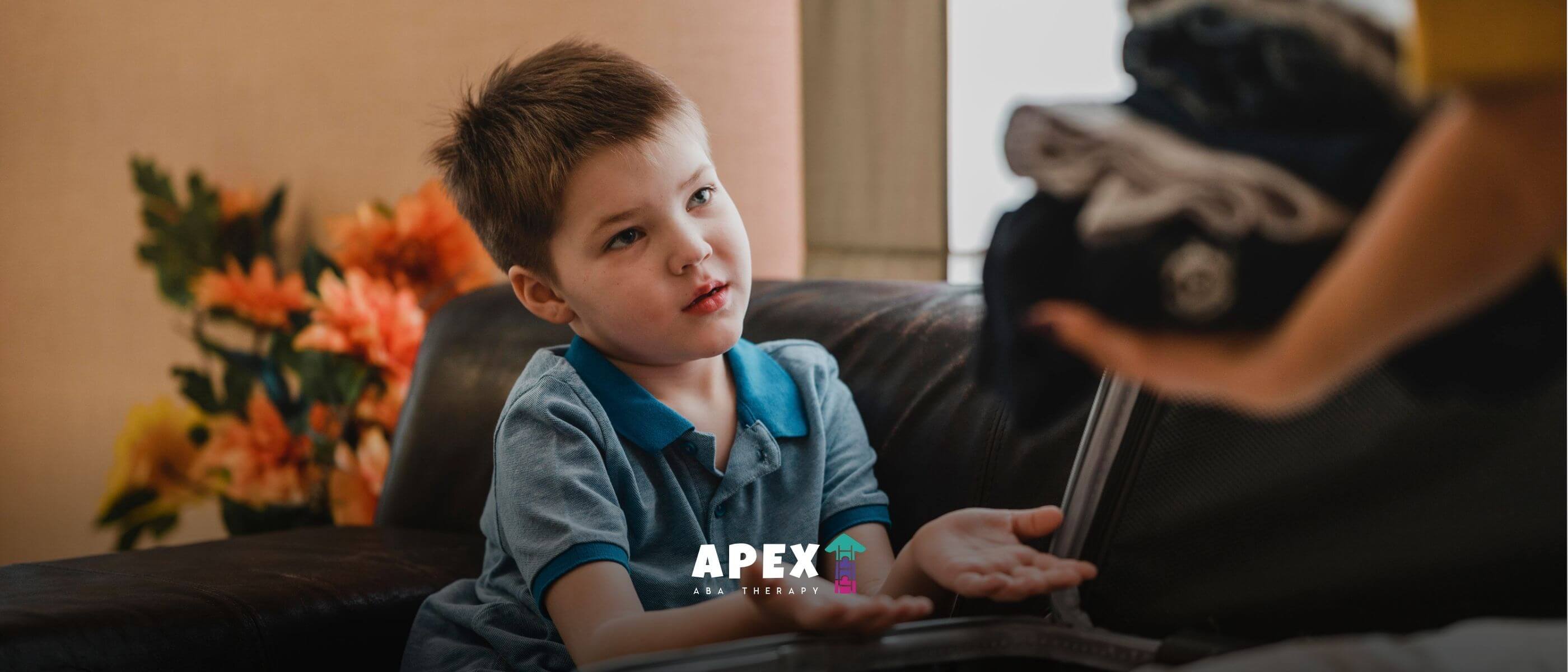
Can a Child Have Autism and Still Talk Normally?
Can a Child Have Autism and Still Talk Normally?

What Are the Red Flags for Autism in a 2-Year-Old?
Autism Red Flags in 2-Year-Old Children | Apex ABA

Is Autism a Lifelong Condition?
Is Autism a Lifelong Condition? Understanding The Journey

Best Age to Start ABA Therapy & What Parents Should Know
Best Age to Begin ABA Therapy for Children | Apex ABA

What’s the Difference Between High-Functioning Autism and Asperger’s?
Difference Between High-Functioning Autism and Asperger’s

ABA Therapy Enhancing Social Skills: A Key to Improved Communication and Interaction for Children with Autism
How ABA Therapy Helps Children Build Social Skills

Misconceptions About ABA Therapy: Clearing Up the Myths
Common Misconceptions About ABA Therapy | Apex ABA

What Does It Mean to Be “On the Spectrum”?
What Does It Mean to Be on the Autism Spectrum? | Apex ABA
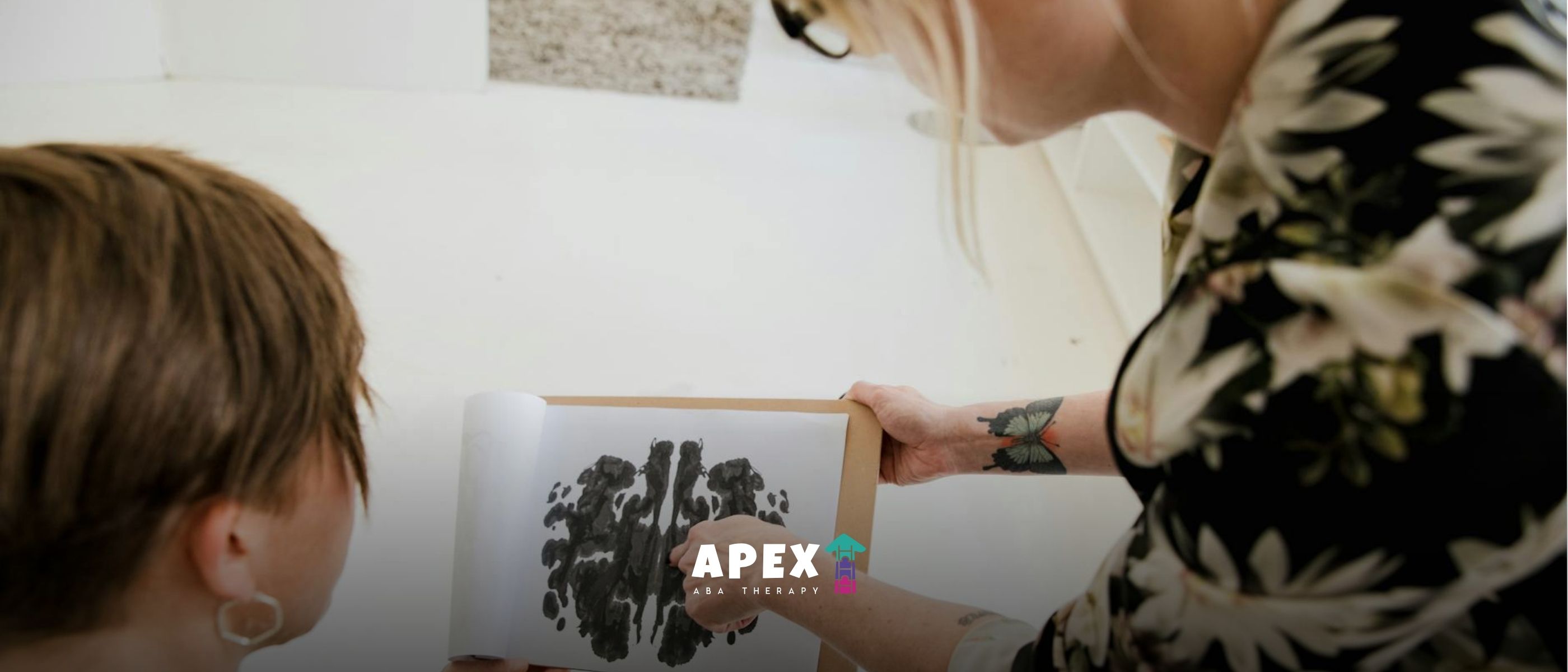
Understanding the Power of Functional Behavior Assessment ABA
Effective ABA Techniques for Behavioral Intervention

Discover How ABA Helps ADHD in Your Child’s Life
How ABA Therapy Helps Children with ADHD | Apex ABA

Life-Changing ABA Therapy Case Studies You Need to Know
Real Success Stories from ABA Therapy Journeys | Apex ABA

Can Children “Outgrow” Autism?
Can Children Outgrow Autism? Understanding the Facts
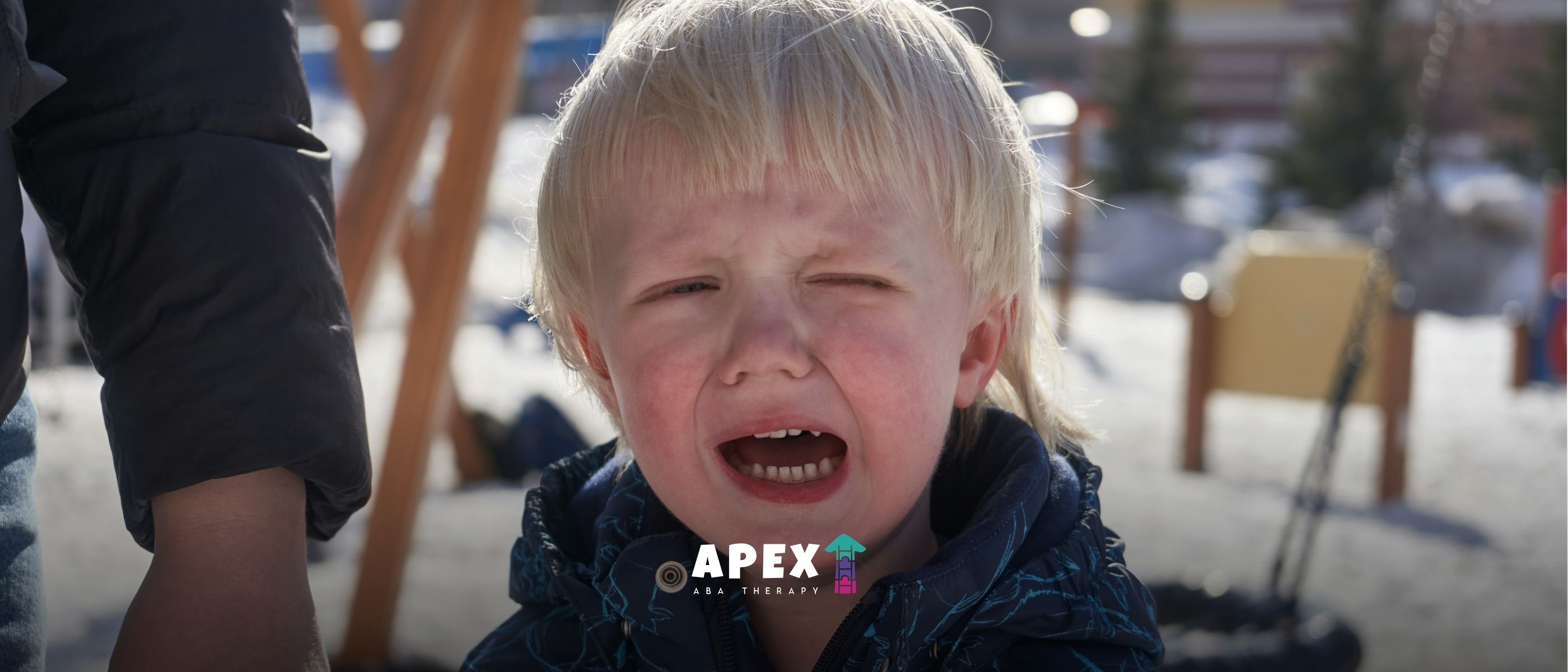
Is Autism a Mental Illness or a Developmental Disorder?
Mental Illness or Developmental Disorder Explained

Is Autism More Common in Boys Than Girls?
Autism in Boys vs Girls: What the Research Reveals

What is the Difference Between Autism and Sensory Processing Disorder?
Autism vs Sensory Processing Disorder Differences | Apex ABA

What's the Difference Between Autism and Speech Delay?
Autism vs Speech Delay & Key Differences Explained | Apex
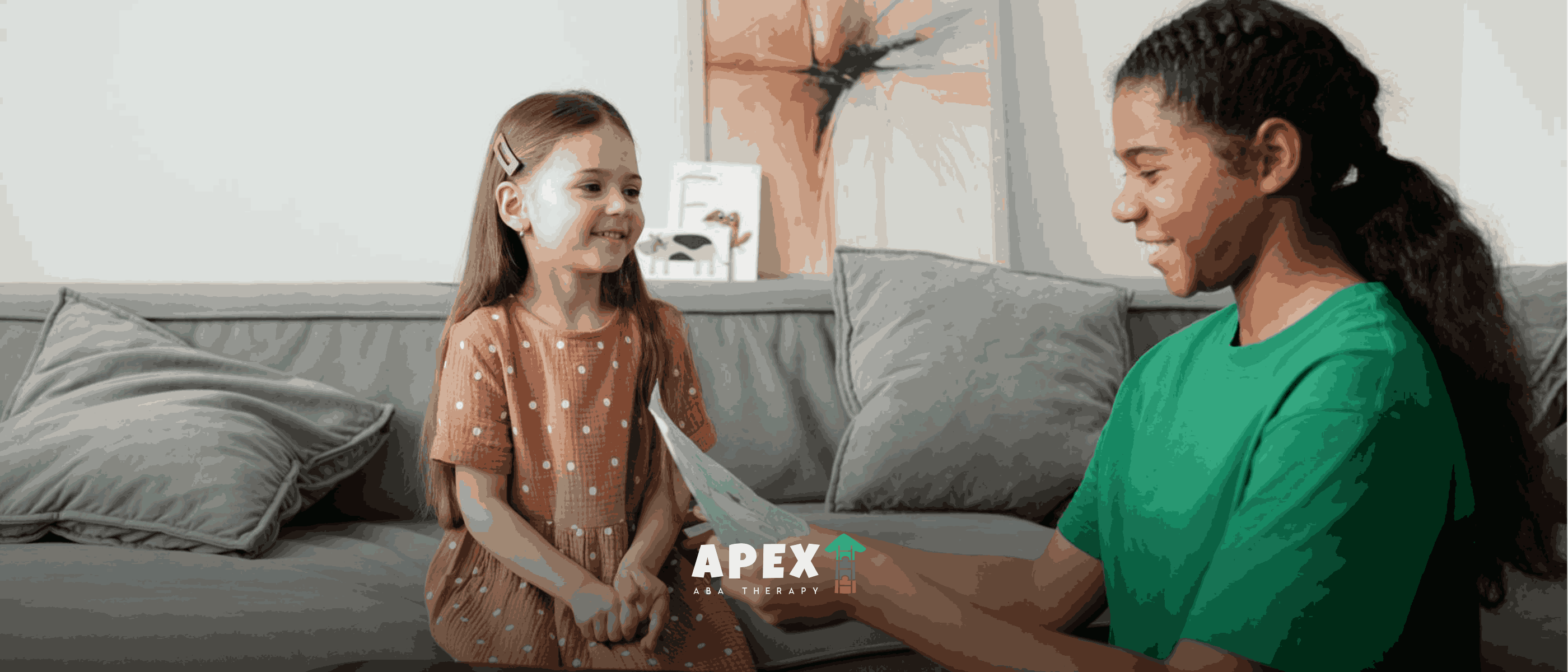
ABA Therapy in North Carolina: A Complete Guide for Families
Learn everything about ABA therapy in North Carolina, including services, costs, insurance coverage, and how to choose the best ABA provider in North Carolina.

ABA Therapy vs Preschool: Making the Right Choice Explained
Learn the key differences between ABA therapy and preschool to help you choose the best option for supporting your child’s early learning and development.

Which Personality Type Is Most Likely to Be Autistic?
Which Personality Type Is Most Likely to Be Autistic? | Apex ABA

Why Consistency Matters: What Happens If ABA Therapy Ends Prematurely
What Happens If ABA Therapy Is Stopped Too Early? | Apex ABA

How Can You Gain an Autistic Person’s Attention? Tips for Meaningful Connection
How Can You Gain an Autistic Person’s Attention?

Sensory Sensitivity and Sixth Sense: What Autism Research Shows
Do Autistic People Have Sixth Sense? | Apex ABA
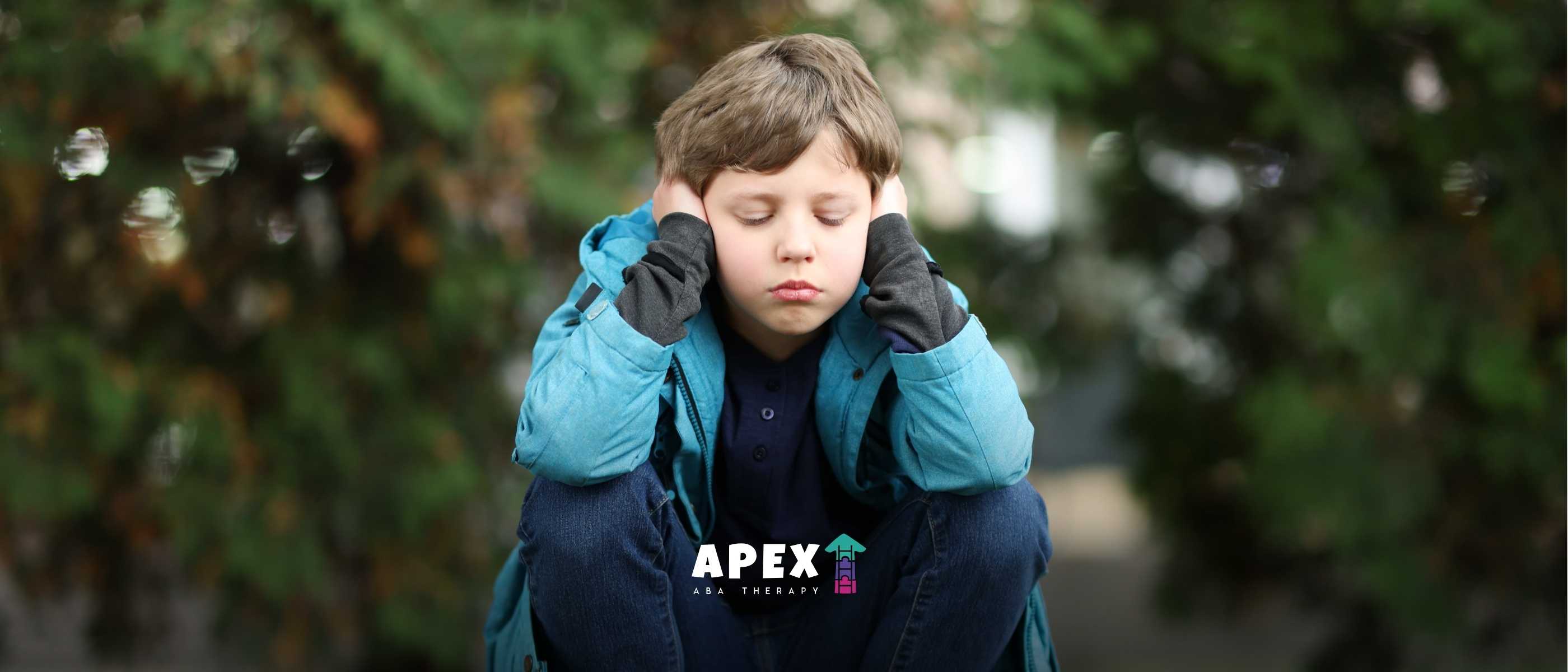
What Happens If Autism Is Left Untreated?
Can Autism Get Worse If Untreated? | Apex ABA

What Not To Do With An Autistic Child: Avoid These 10 Mistakes
What Not To Do With An Autistic Child? | Apex ABA

Coping with Regressive Autism: Tips for Parents
What is Regressive Autism? | Apex ABA

Do Autistic Kids Live with Parents Forever? Here’s the Reality
Do autistic kids live with parents forever? Discover the facts about independence and living arrangements in autism with expert-backed insights.

Red Flags in ABA Therapy: What Parents Must Watch For
What are the red flags in ABA therapy? Learn to identify warning signs for safe, effective autism treatment in this blog.

Can You Go from Level 3 Autism to Level 1? Is It Possible?
Can you go from level 3 autism to level 1? Learn about progress, therapy, and support options with expert help from Apex ABA.

Autism vs Introversion: How to Tell the Difference
Is it autism or just introversion? Learn the key differences and signs with expert insights from Apex ABA.
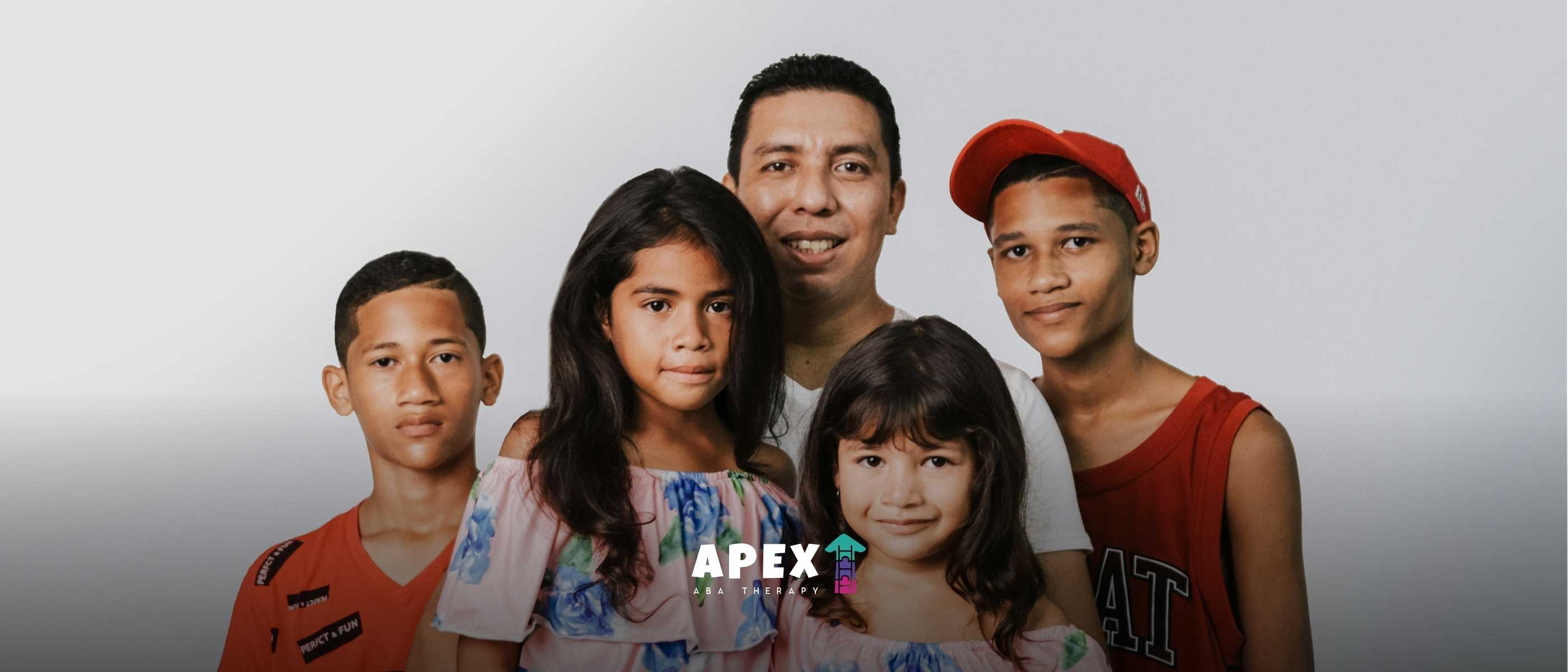
ABA for Managing Transitions: Tips to Ease Change for Kids
Learn how ABA for managing transitions helps children with autism handle change smoothly.

Understanding the 7 Dimensions of ABA for Better Outcomes
Discover the 7 Dimensions of ABA and how they can lead to better outcomes.

5 Unique Autistic Love Languages You Should Know About
Discover the 5 unique autistic love languages that can enhance your relationships.

Transforming Futures: Improving Lives of Kids with Autism
Discover how innovative strategies are focused on improving lives of kids with autism.

ABA Therapy Techniques for Addressing Repetitive Behaviors in Autism
Harnessing ABA Strategies to Tackle Repetitive Behaviors in Autism

The Role of ABA Therapy in Enhancing Communication Skills
Transforming Communication for Children with Autism Through ABA Therapy

How ABA Therapy Supports Effective Communication in Nonverbal Children
Unlocking Speech Through ABA: Transformative Paths for Nonverbal Children

How to Help Your Child Transfer Skills Learned in ABA Therapy to Real Life
Unlocking Real-World Success for Children in ABA Therapy

How ABA Therapy Helps Children Develop Better Organizational Skills
Empowering Children with ABA Therapy for Enhanced Organizational Skills

The Importance of Creating a Structured Routine in ABA Therapy
How Structured Routines Transform ABA Therapy for Autism

The Role of ABA Therapy in Developing Conflict Resolution Skills
How ABA Therapy Transforms Conflict Resolution Competence

The Importance of Generalization in ABA Therapy for Autism
Unraveling the Role of Generalization in Enhancing ABA Therapy Outcomes

Why ABA Therapy is Crucial for Parents of Children with Autism
The Transformative Impact of ABA Therapy on Families with Autistic Children

How to Involve Parents in the ABA Therapy Process
Maximize Parent Engagement in ABA Therapy for Better Outcomes

What are the Core Principles of ABA Therapy?
Exploring the Cornerstones of Applied Behavior Analysis

Why Communication is Key in ABA Therapy for Autism
The Crucial Role of Communication in ABA Therapy for Autism

Why ABA Therapy Works for Children with Autism Regardless of Severity
Effective ABA Interventions for All Levels of Autism

Why It’s Important to Maintain a Balanced Approach to ABA Therapy
Balancing Effectiveness and Ethics in ABA Therapy

The Role of ABA Therapy in Developing Adaptive Behavior Skills
Exploring How ABA Therapy Transforms Lives

The Benefits of Combining ABA Therapy with Speech Therapy
Maximizing Development with Integrated Therapy Approaches

What to Expect During an ABA Therapy Session
Demystifying ABA Therapy Sessions: A Comprehensive Overview

How ABA Therapy Enhances Cognitive Functioning in Children with Autism
Exploring the Influence of Applied Behavior Analysis on Autism Cognition

How ABA Therapy Helps Children with Autism with Transitions Between Activities
Easing Transitions for Children with Autism: The Role of ABA Therapy

How to Foster Cooperation Between Parents and Therapists in ABA Therapy
Building Effective Partnerships in ABA Therapy

The Role of Positive Reinforcement in ABA Therapy
Exploring the Impact of Positive Reinforcement in Modern ABA Therapy

Why ABA Therapy is Effective for Children of All Ages
Understanding the Reach and Impact of ABA Therapy Across Age Groups

How to Support Your Child’s Emotional Growth with ABA Therapy
Harnessing ABA Therapy for Enhancing Emotional Development in Children with Autism

The Role of ABA Therapy in Enhancing Peer Relationships for Children with Autism
Harnessing ABA Therapy to Boost Social Connections Among Autistic Children

How to Overcome Common Challenges in ABA Therapy
Navigating Hurdles in ABA Therapy: Strategies and Solutions

How to Manage Behavioral Expectations with ABA Therapy
Understanding Applied Behavior Analysis in Behavioral Management

How ABA Therapy Promotes Emotional Regulation in Children with Autism
Unlocking Emotional Balance: ABA Therapy's Role in Autism

How ABA Therapy Improves Social Skills in Children with Autism
Harnessing ABA Therapy to Enhance Social Competency in Autistic Children

The Role of ABA Therapy in Classroom Success for Children with Autism
Harnessing ABA for Academic and Social Growth in Autism

The Importance of Evaluating and Revising ABA Therapy Goals Regularly
Regular Evaluations: The Cornerstone of ABA Therapy Success

How to Choose the Right ABA Therapy Program for Your Child
Finding the Perfect ABA Therapy Fit for Your Child

The Role of Behavior Analysts in Implementing ABA Therapy
Understanding the Vital Contributions of Behavior Analysts in ABA Therapy

The Role of RBTs (Registered Behavior Technicians) in ABA Therapy
A Closer Look at the Essential Work of RBTs in ABA Therapy

What Makes ABA Therapy Effective for Different Learning Styles?
Unraveling the Flexibility and Effectiveness of ABA Therapy

Understanding the Importance of Data Collection in ABA Therapy
The Role of Data in Shaping Effective ABA Therapy

How ABA Therapy Helps with Toilet Training in Children with Autism
Unlocking Independence: ABA's Role in Autism Toilet Training

The Importance of Encouraging Natural Play in ABA Therapy
Revolutionizing ABA Therapy with Natural Play

How to Make the Most of ABA Therapy at Home
Enhancing ABA Therapy Practices Within Your Home

How to Make ABA Therapy Fun and Engaging for Children with Autism
Transforming ABA Therapy into a Fun Learning Journey

The Role of ABA Therapy in Addressing Verbal and Nonverbal Communication in Autism
Enhancing Communication Skills in Autism Through ABA Therapy

Understanding the Role of Family in ABA Therapy for Autism
The Crucial Impact of Family Engagement in Autism Therapy

How to Handle Setbacks and Challenges in ABA Therapy
Navigating Difficulties and Setbacks in ABA Therapy for Children

How ABA Therapy Can Help Children Build Stronger Relationships with Peers
Unpacking the Influence of ABA Therapy on Peer Relationships in Children

Understanding the Concept of Shaping in ABA Therapy
Demystifying Shaping Techniques in Applied Behavior Analysis

How ABA Therapy Enhances Independent Living Skills in Autism
Unlocking Independence: The Role of ABA Therapy in Autism
.jpg)
90+ Reading Statistics, Facts and Demographics
In this article, we will dive into 60 reading statistics that shed light on the importance of reading and its impact on different aspects of life.



